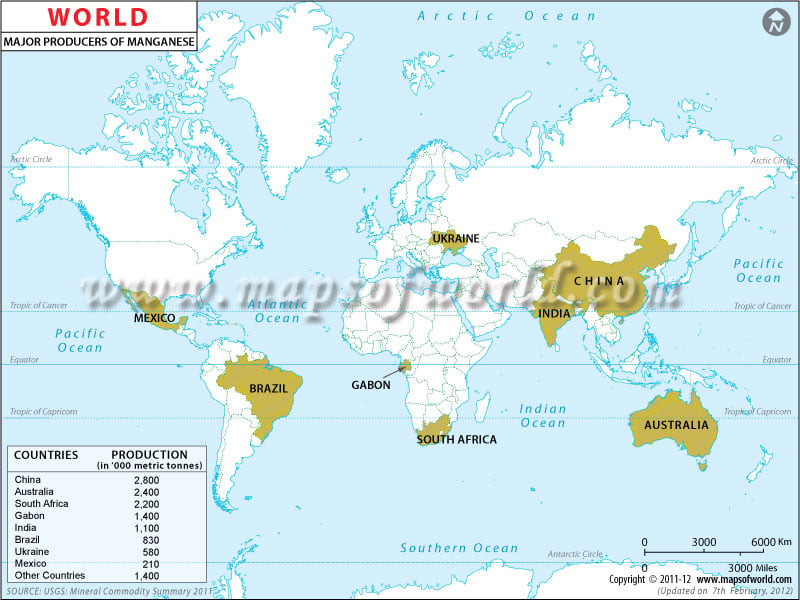Manganese is a silvery-gray metal occurring naturally and is found often in combination with iron, and in many minerals. Hard and brittle, it is used for many industrial purposes and in the formulation of stainless steel.
Manganese is essential in the production of iron and steel by virtue of its deoxidizing, and alloying properties.
The other major use of manganese is its use as an alloying agent for aluminium.
Besides its industrial uses, manganese has important biological uses; it is an essential trace nutrient in all forms of life. In the human body, it is stored in the bones, liver and kidneys.
The majority of broad-spectrum plant fertilizers contain manganese.
The World Map of Manganese Producers shows the countries that produce the maximum quantities of manganese. As the data in the map shows, China is the world’s largest manganese producer; in 2010 it produced 2,800 thousand metric tonnes of manganese.
The second place is occupied by Australia followed by South Africa, Gabon, India, Brazil, Ukraine, and Mexico.
Manganese was first produced by an aluminothermic process in 1898. In 1940, the development of electrolytic manganese began on a large scale; fourteen years later in 1954 the first commercial-sized plant was built in the United States.
Major Producers of Manganese in world-2010
| Country | Production (Thousand Metric Tonnes) |
| China | 2,800 |
| Australia | 2,400 |
| South Africa | 2,200 |
| Gabon | 1,400 |
| India | 1,100 |
| Brazil | 830 |
| Ukraine | 580 |
| Mexico | 210 |
| Other Countries | 1,400 |
